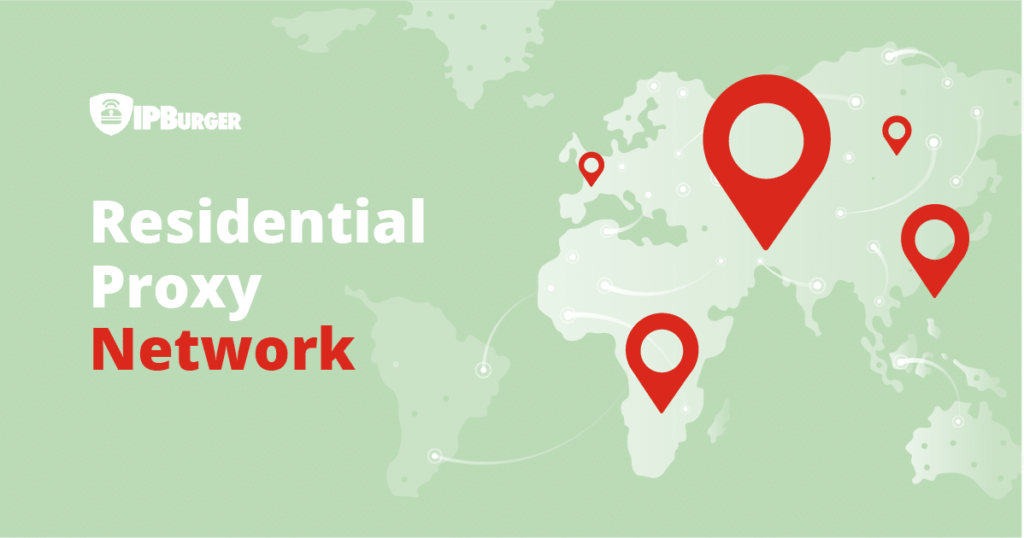You’re here to learn about residential proxies.
Some find it a little hard to get their heads around – relax.
This is a refreshingly simple rundown that keeps you both informed
and engaged.
(but put on a dope playlist for good measure)
No offense taken if you want to skip ahead,
but you’ll miss out on all the fun.
What’s a residential proxy?
A residential proxy allows you to browse the web anonymously. It does this by borrowing a residential IP address from another user’s device. You can choose where in the world this device is from, which ultimately permits you to browse the web as a local in that part of the world.
The key here is that residential IP addresses come from an Internet Service Provider (ISP). When an ISP agrees to deal their internet service to someone in their territory, they give them an IP address. So only real people have these special residential IP addresses.
Take a moment.
Recall your favorite scene in a movie or tv series. One where someone wears a disguise and mumbles some questionable russian to slip by security and save the world.
(Third season of Stranger Things, for example.)
Kinda like that.
But even though you wear a disguise, it doesn’t look like anything suspicious is going on.
With a data center proxy for instance, the guards will find your accent dubious and start to question the bristle of your fake moustache.
But before we get into that…
What’s a proxy?
It’s the intermediary or a ‘stand-in’ for the real thing.
A proxy is the body-double for your IP address. It runs your errands while your real identity and location remain anonymous.
Okay so..
What’s a residential IP address?
To keep it simple, a residential IP address is kind of like a home address.
Replace the homestead with a PC, mobile phone or router,… and the street address with a sequence of numbers, punctuated by dots.
(That’s the IP address.)
Residential IP addresses are assigned by an Internet Service Provider(ISP) and exist in a public registry. If you haven’t already, check out a website like what is my ip.
To really appreciate residential proxies, we need to expand a little on data center proxies. (The ones with the dubious accent and questionable moustache.)
Here’s why they have a bad rep:
Data center proxies are often recognized as workhorses for bots, hackers, scrapers, and users with less-than-noble pursuits.
Websites would rather not have them snooping around.
It doesn’t matter if you mean no harm – if you use a data center proxy – you’re tossed in the same box.
And that box is not fun.
If you want to blend in, don’t stick out.
Stick with a residential proxy.
However, they’re not so cut-and-dry.
There’s a few different types – and they do different things.
Types of Residential Proxies
First, you can divide residential proxies into two types: static and rotating.
Static residential proxies
Static residential proxies allow you to use the same IP address for as long as you’d like. This comes in handy when you want to appear as the same ol’ user.
Rotating Residential Proxies
Also known as backconnect proxies, rotating residential proxies allow you to continuously change your IP address to a different one.
You can get a bit flexible with these:
You can opt to rotate proxies at specific time intervals or with each request you make.
And why would you wanna do that?
You see, sometimes websites find it highly irritating to receive request after request from the same IP address.
Actually, continuous pings are signature behaviour of spammy-type users, and some are perceived as harmful to the website.
Even if the constant requests are residential, they block em’.
So instead, you can rotate proxies every time you send a request. And make all the requests your heart (or ulterior drives) desire.
This is the winning ticket for web scraping because you can send thousands of requests at a time, while websites don’t even bat an eyelash.
Rotating proxies tend to be shared with others, but there’s private options too.
Dedicated Residential Proxies
Also known as private residential proxies, these are for your use only. None of the bandwidth is shared, so the performance is faster.
Private is best for those who manage high-risk accounts and services.
However, it’s not uncommon for some private proxy providers to share the same IP address with other users – which can affect performance and increase risk to brand reputation.
Non-dedicated Residential Proxies
If you use a non-dedicated residential proxy, you’re sharing the IP address with other users. Shared residential proxies have any number of users.
Semi-shared residential proxies are a variation that limit each IP address to roughly 3-4 users.
You may not notice too much of a difference in performance, but it really depends on who shares it with you.
The plus side is that sharing tends to be cheaper and more anonymous.
Fun, right?
Moving on…
Sticky Residential Proxies
Often referred to as a ‘sticky session’, this feature of rotating residential proxies allows you to ‘stick to’ an IP address for up to 30 minutes.
But why would you wanna be sticky?
In some cases you may want to ‘hold on a minute’ and stick with one IP address. For instance, checking out of an online store or waiting in a queue to cop some dunks.
Now, onto the really important stuff.
What are residential proxies used for?

Bypassing Geo-blocks
Residential proxies are keys to access websites that have geographical restrictions.
Remember, proxies are all over the world, and you access the internet from where the proxy is.
With unrestricted online access to anywhere in the world you can:
- Expand the reach of your market research.
- Verify ads and affiliate links as a local user.
- Scrape flight prices from around the world and find the best rates.
- Monitor abuse or misuse of your brand and bolster brand reputation.
- Advertise products and services on sites like Craigslist across the US.
And that’s just a few cases.
Market Research and Monitoring
Residential proxies keep up with advancing technology. (That’s fast)
So they’re able integrate with monitoring and data collection tools, automation processes, and sales intelligence software.
- You can pull massive loads of precise data without detection.
- Discretely and efficiently monitor marketplace fluctuations in real-time.
- Spy on competition. (Essentially, you’re the James Bond of the internet.)
Social Media Networking
Social media platforms like Instagram, Facebook, Reddit, and Twitter are vets when it comes to preventing automated activity.
- Residential proxies allow you to change your location to set up new accounts. (Then use a fresh proxy to manage accounts long-term)
- Rinse and repeat and you’re managing multiple accounts with ease.

eCommerce
Sites like Ebay and Amazon monopolize many products on their platform.
People get banned for simply selling too much. (For other things too…)
This can cost small businesses thousands of dollars, or their entire livelihood – even with perfect reviews and ratings.
- Avoid bans from sites like eBay, Amazon, Shopify, and Craigslist
- Create and manage multiple stealth accounts to protect your hard-earned ratings and secure sellers accounts long-term
Copping Sneakers, and Vaccines?
Shoe bots, aka sneaker bots and footsite bots, snag up to 99% of merchandise during sneaker drops. It’s nearly impossible for someone to cop without one.
Sneaker bots can make a thousand purchase attempts on a sneaker drop before anyone can enter the first letter of their first name.
A countermeasure is to queue customers during a drop.
Not a bad idea.
But the sneaker bots counter back with sticky sessions.
The same goes for concert tickets, gaming consoles, luxury items..anything that profits.
Including vaccines.
Where there’s high demand and a limited supply, there’s profit to be made.
Yup. There’s ethical and unethical uses of technology.
But other than the darkside of proxies, are there any other drawbacks?
Yeah. If you compare them with data center proxies – they’re a little pricey.
But that’s about it.
Is there anything else you’d like to know about residential proxies?
We’ve covered a lot here but if you have any burning questions..
Feel free to get in touch.



